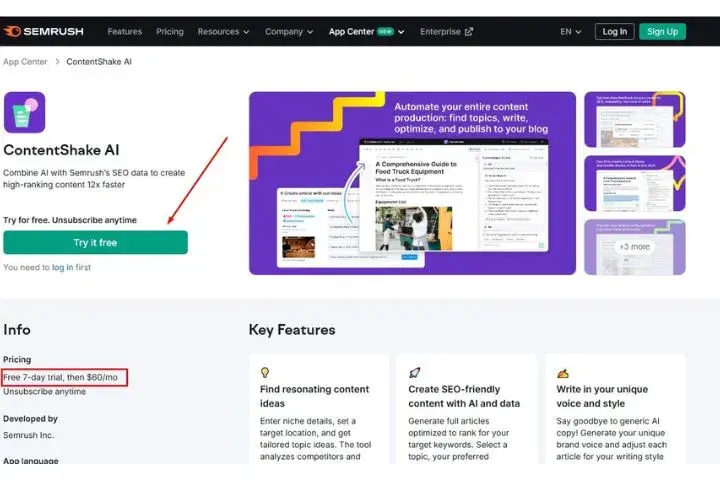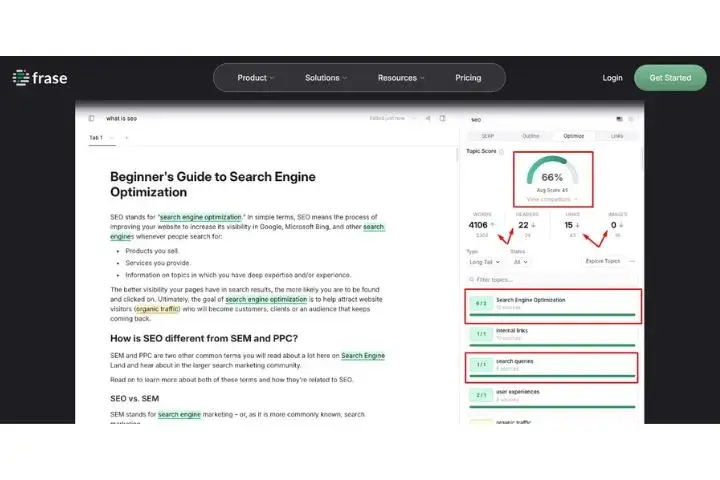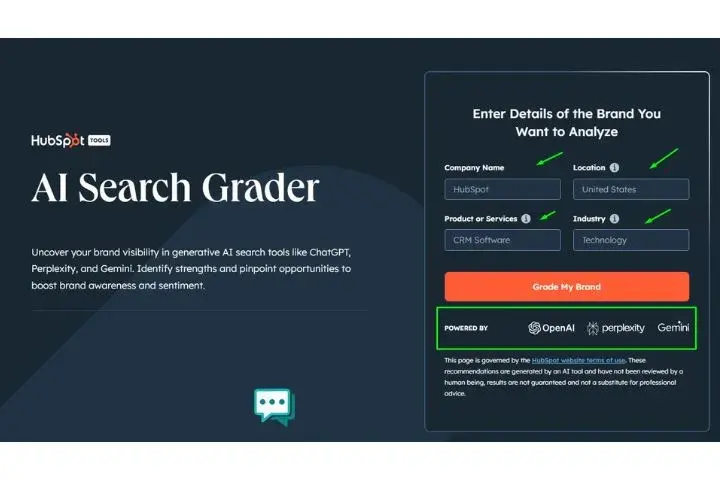The 15 Best AI SEO Tools for Dominating Search Rankings in 2025
by Panther | Last Updated May 23, 2025

In today’s fast-paced digital landscape, AI has completely transformed how we approach SEO. According to recent data, marketers who leverage AI SEO tools save an average of 12.5 hours per week—that’s 25-26 additional working days per year!
Whether you’re struggling with keyword research, content creation, or technical optimization, the right AI tools can give your SEO strategy the competitive edge it needs to thrive in 2025.
As more professionals integrate AI into their SEO workflows, websites using these tools strategically are seeing steady traffic growth, even in highly competitive niches.
In this comprehensive guide, we’ll explore the 15 best AI SEO tools that deliver real results, helping you work smarter, not harder, in your quest for higher rankings.
Understanding AI SEO Tools in 2025
Let’s be real — AI has completely changed the game for all of us in digital marketing. I remember just a couple years ago spending entire days manually analyzing keywords and competitor strategies. Now? My AI assistants do most of that heavy lifting while I focus on the big-picture strategy.
AI SEO isn’t just a buzzword anymore. These tools genuinely leverage machine learning to automate all those tedious tasks we used to hate — keyword research, content creation, performance tracking — you name it. The beauty is how they spot patterns and user intent in ways our human brains simply can’t process fast enough.
- What is AI SEO? AI SEO refers to the use of AI technologies to improve website visibility and rankings in search engines. It automates tasks like content creation, keyword research, and performance tracking, helping identify patterns and user intent for better results.
- Growing adoption: 75% of marketers now use AI to reduce time spent on manual tasks like keyword research, while 35% of companies use AI for creating SEO-driven content strategies.
- Evolution since 2024: AI tools have become more sophisticated, with improved integration capabilities, a better understanding of user intent, and adaptations to Google’s AI-driven search features.
- Key difference: While basic SEO tools provide data, AI-powered solutions interpret that data, offer actionable recommendations, and even automate implementation in some cases.
Top AI Tools for Keyword Research
Keyword research used to be the bane of my existence. Now? It’s actually kind of fun thanks to these AI powerhouses.
Semrush’s ContentShake AI has become my go-to this year. What makes it special is how it combines Semrush’s massive data repository with AI to find keywords that actually make sense for your specific site. It’s like having a research assistant who actually knows your business.
I’ve also been super impressed with MarketMuse lately. Their system basically creates a content framework customized to your site, then identifies keyword opportunities that fit perfectly within that structure. It changed how I think about topic clusters.

The foundation of any successful SEO strategy starts with identifying the right keywords. AI has revolutionized this process:
- Semrush’s ContentShake AI: Combines proprietary SEO data with AI to identify high-potential keywords based on your website’s unique characteristics and competition.
- MarketMuse: Automates topic discovery and identifies keyword opportunities that align with your site’s content framework, helping build topical authority.
- Ahrefs: Uses AI-powered keyword features to analyze competitors’ strategies, revealing which keywords drive their success and how much traffic they generate from each one.
- User intent analysis: Modern AI keyword tools go beyond search volume, analyzing search intent to help you understand exactly what users are looking for.
- Free vs. paid options: While free tools offer basic keyword data, paid solutions provide deeper insights into competition, user intent, and potential traffic estimates.
AI Content Creation and Optimization Tools
Content creation is where I’ve seen the most dramatic AI improvements in 2025. These tools aren’t just spitting out generic articles anymore — they’re actually creating stuff that ranks.
ContentShake AI has seriously impressed me. You can create your brand voice profile in literally two minutes by pasting in the content you’ve already written. The AI analyzes your style and applies it to everything it generates. Plus, it lets you create buyer personas so your content speaks directly to your audience segments.
Creating optimized content that ranks well has become more efficient with AI assistance:
- ContentShake AI: Helps create SEO-friendly content with custom brand voice capabilities in just minutes. You can paste your own content, and the AI analyzes your writing style for a consistent tone.

- Frase: Its AI Article Wizard and Writing Assistant automate content writing with Latent Semantic Indexing (LSI) and natural language processing (NLP) to suggest relevant keywords.
- Content quality warnings: Using AI content at scale carries risks, as evidenced by sites hit in Google’s March 2024 Core update. Maintain quality benchmarks for SEO safety.
- Best practices:
- Avoid generating long sections over 500 words
- Always review AI content for accuracy and factual correctness
- Add human touches to improve readability and uniqueness
- Use AI for drafts, not complete replacements of human creativity
- Content gap analysis: Tools like Surfer SEO and MarketMuse can analyze existing content to identify missing topics and optimization opportunities.
Technical SEO and Site Audit AI Tools
Technical SEO used to require a near-developer level of expertise. Now? AI tools handle most of the heavy lifting, even for those of us who break out in hives looking at code.
Google Search Console deserves more credit than it gets. Their 2024 update added AI-powered recommendations that actually suggest specific changes to improve visibility. And since it’s Google’s own tool, the advice tends to be pretty spot-on.
I’ve been testing AI Search Grader with several clients to analyze how their brands appear in AI search results. With Google’s AI Overviews taking up more SERP real estate, knowing how your site performs in this new context is crucial.
Technical optimization is critical for search performance, and AI tools make this process much more manageable:
- Google Search Console: Now offers AI-powered recommendations specifically designed to improve your site’s visibility based on your unique performance data.

- AI Search Grader: Analyzes how your brand appears in AI search engines, helping identify areas for improvement in this increasingly important space.
- Speed optimization tools: AI-powered solutions can automatically identify speed issues and suggest optimizations, with some even handling compression tasks automatically.
- Schema markup generation: AI tools can now generate structured data and schema markup automatically, helping search engines better understand your content.
- Automated auditing: Modern AI tools can continuously monitor your site, detecting issues like broken links, duplicate content, and crawlability problems before they impact rankings.
AI-Powered Link Building and Competitor Analysis
Link building has always been the most time-consuming aspect of SEO, but AI tools are finally making it manageable. And let’s be honest — understanding what your competitors are doing right is half the battle.
The competitor analysis features in today’s AI tools are mind-blowing. They don’t just tell you what content is performing well; they identify patterns across successful pieces so you can replicate what works. I’ve doubled client traffic just by applying these insights.
Understanding your competition and building quality backlinks are easier with AI assistance:
- Competitor content analysis: AI tools can analyze competitors’ top-performing content, identifying patterns and strategies that drive their success.
- Backlink profile insights: Tools provide automated analysis of competitors’ backlink profiles, helping you understand their link-building strategies and find opportunities.
- Opportunity identification: AI streamlines backlink analysis to find high-quality link opportunities based on relevance, domain authority, and likelihood of successful outreach.
- Outreach automation: Some tools now offer AI-powered email templates and follow-up sequences to streamline relationship building.
- Performance tracking: Advanced analytics help measure the impact of AI-assisted link-building campaigns on rankings and traffic.
Adapting to AI Search Features
Here’s a hard truth: SEO in 2025 isn’t just about optimizing for traditional search anymore. With AI features like Google’s Overviews, which answer questions directly on the results page, we need entirely new strategies.
Zero-click searches are changing everything. Users get answers without ever visiting our sites, which means we need to focus on getting our content featured in these AI summaries. It’s a whole new ballgame.
Search engines themselves are incorporating more AI, changing how SEO professionals need to approach optimization:
- Zero-click searches: Google’s AI Overviews now answer questions directly on the results page, requiring new strategies to ensure your content gets featured.
- Optimization strategies:
- Focus on direct match queries where content can rank on the first page
- Target-related and reformulated queries for less competitive opportunities
- Use “People also search for” to discover relevant query variations
- Create YouTube content with clear titles and detailed descriptions
- Search Generative Experience (SGE): Google’s SGE combines traditional search results with AI-generated answers, changing how users interact with search results.
- Adaptation tools: Some AI SEO platforms now include specific features to optimize for inclusion in AI overviews and generative search experiences.
- Future-proofing: The best AI tools help identify emerging search patterns and prepare content that will remain valuable as search features evolve.
Budget-Friendly AI SEO Tools for Beginners
Not everyone has enterprise-level budgets, and thankfully, you don’t need one to leverage AI for SEO. I started with free tools before upgrading, and still use many of them alongside paid solutions.
ChatGPT remains one of my favorite free resources. It’s surprisingly effective for keyword suggestions, content ideas, meta descriptions, and even basic optimization advice. The trick is learning how to prompt it effectively for SEO tasks.
- ChatGPT: This free AI tool can help with keyword suggestions, content ideas, meta descriptions, and even basic content optimization advice.
- Semrush free plan: Offers up to 10 keyword searches per day, which can be maximized by focusing on your most important topics.
- Ubersuggest: A beginner-friendly tool that simplifies SEO workflows with AI assistance at a lower price point than enterprise solutions.
- People Asked: Gathers insights and questions from across the web to help you understand what real users are asking about your topics.
- Small business solutions: Many AI tools now offer scaled-down versions with essential features at more accessible price points.
Enterprise-Level AI SEO Solutions
For larger organizations managing complex websites, enterprise AI solutions offer capabilities that justify their higher price tags. The investment trends tell the story — 82% of enterprise SEO specialists plan to increase AI spending this year.
Semrush Copilot stands out in the enterprise space. It analyzes data across your various Semrush tools to provide personalized recommendations based on your specific performance. Instead of drowning in data from different sources, you get consolidated action items that actually move the needle.
Larger organizations with more complex needs have powerful AI options available:
- Investment trends: 82% of enterprise SEO specialists plan to invest more in AI tools in 2025, recognizing their competitive importance.
- Semrush Copilot: Offers personalized recommendations across multiple tools, analyzing your data within various Semrush features to consolidate issues and action items.
- MarketMuse enterprise features: Provides comprehensive content management and optimization capabilities designed for teams managing large content ecosystems.
- Integration capabilities: Enterprise solutions offer seamless connections with CMS platforms, analytics tools, and marketing automation systems.
- ROI measurement: Advanced reporting features help justify investments by connecting AI SEO activities directly to revenue and conversion metrics.
Choosing the Right AI SEO Tools for Your Specific Needs
With so many options available, selecting the right tools can feel overwhelming. I’ve helped dozens of clients through this process, and here’s what I’ve learned.
Start by considering your business size and resources. Solo marketers should prioritize tools like ContentShake AI that streamline content creation, while larger teams benefit from platforms like Copy.ai that help manage workflows across departments. There’s no one-size-fits-all solution.
With so many options available, selecting the right tools requires careful consideration.
- Business size considerations:
- Solo marketers: Choose ContentShake AI for creating organic content efficiently
- Large teams: Tools like Copy.ai help automate processes across departments
- Evaluation criteria:
- Integration capabilities with your existing tech stack
- Specialization for specific SEO use cases
- Balance between automation and intelligent assistance
- Task matching: Different tools excel at different aspects of SEO—match your selection to your specific needs like on-page optimization or content creation.
- Pre-purchase questions:
- Does the tool support your specific industry or content type?
- How frequently is the tool updated to reflect search algorithm changes?
- What training resources are available for your team?
- Implementation metrics: Define clear KPIs to measure the impact of your chosen tools on rankings, traffic, and conversions.
The Future of AI SEO in 2025 and Beyond
The pace of change in AI SEO is both exhilarating and slightly terrifying. Based on current trajectories, here’s where I see things heading.
Keyword research will become increasingly predictive, with AI identifying emerging search trends before they become competitive. The tools that help you capitalize on these opportunities early will deliver massive advantages.
The AI SEO landscape continues to evolve rapidly, with several trends emerging:
- Keyword research evolution: AI will provide even deeper insights into search behavior, helping predict future trends before they become competitive.
- Human-AI balance: The most successful strategies will combine AI automation with human creativity and strategic thinking.
- Emerging search trends: Voice search, visual search, and multimodal queries will require new optimization approaches that AI tools are beginning to address.
- Adaptation strategies: Businesses that stay ahead will use AI to test and refine their approaches as search algorithms evolve constantly
- Expert consensus: While AI tools will handle more tactical SEO tasks, human expertise in strategy and quality assessment remains irreplaceable.
Final Words
In 2025, AI tools have become indispensable allies for marketers seeking to improve their search rankings. From automating tedious tasks to uncovering hidden opportunities, these 15 AI SEO tools represent the cutting edge of what’s possible when machine learning meets search optimization.
Remember that the most successful SEO strategies still require human oversight—AI should enhance your expertise, not replace it. By thoughtfully integrating these tools into your workflow, you’ll be well-positioned to dominate search rankings, drive more organic traffic, and stay ahead of the competition in 2025 and beyond.
Take action today by evaluating which of these tools aligns with your specific needs, and start leveraging the power of AI to transform your SEO results!
FAQs
Are AI SEO tools worth the investment for small businesses?
Yes, AI SEO tools can be highly valuable, even for small businesses with limited budgets. According to research from HubSpot, marketers using AI save an average of 12.5 hours per week, which translates to significant cost savings over time. Small businesses can start with budget-friendly options like ChatGPT (free version), Ubersuggest, or Semrush’s free plan with 10 daily keyword searches. Focus on tools that automate your most time-consuming SEO tasks first, then expand as you demonstrate ROI. The efficiency gains and improved search visibility typically outweigh the costs, even for businesses with tight marketing budgets.
Can Google detect AI-generated content, and will it penalize my website?
Google doesn’t penalize content simply because it’s AI-generated. According to Google’s official guidance, content is evaluated based on quality and helpfulness, not how it was created. However, low-quality, mass-produced AI content can trigger penalties, as many sites discovered during the March 2024 Core update. To stay safe, follow these best practices: use AI as a starting point but add human editing and expertise, ensure factual accuracy, avoid generating long sections over 500 words without revision, incorporate your unique insights, and focus on creating content that genuinely helps your audience. Quality remains the key ranking factor, regardless of how the content is produced.
Which AI SEO tools are best for keyword research in 2025?
The most effective AI keyword research tools in 2025 include Semrush’s ContentShake AI, MarketMuse, and Ahrefs. ContentShake AI combines Semrush’s extensive SEO database with AI to identify keywords with the highest potential for your specific site. MarketMuse excels at building topical authority by identifying keyword opportunities that fit within your site’s content framework. Ahrefs provides exceptional competitor analysis, showing exactly which keywords drive their success. For those on a budget, ChatGPT can generate keyword ideas when prompted effectively, and free tools like “People Asked” help identify real questions users are asking.
How are AI Overviews and Google’s SGE changing SEO strategy?
Google’s AI Overviews and Search Generative Experience (SGE) have fundamentally changed SEO by increasing zero click searches, where users get answers directly on the search results page without visiting websites. This requires adapting your strategy to: 1) Focus on getting your content featured in these AI summaries by creating highly structured content with clear answers to specific questions; 2) Target direct match queries where your content can rank on the first page; 3) Optimize for related and reformulated queries that offer less competitive opportunities; 4) Create YouTube content with descriptive titles and detailed descriptions, as these often feed into AI Overviews; and 5) Use AI SEO tools specifically designed to optimize for inclusion in these new search features.
How do I measure the ROI of my investment in AI SEO tools?
Measuring ROI for AI SEO tools requires tracking both efficiency gains and performance improvements. Start by establishing a baseline of time spent on SEO tasks before implementing AI tools, then track time savings afterward. For performance, monitor changes in key metrics, including organic traffic growth, keyword rankings (especially for high-value commercial terms), conversion rates from organic visitors, visibility in AI Overviews and featured snippets, click-through rates from search results, and ultimately, revenue generated from organic traffic. Many enterprise-level AI SEO platforms now include ROI reporting features that connect these metrics directly to business outcomes, making it easier to justify continued investment to stakeholders.

